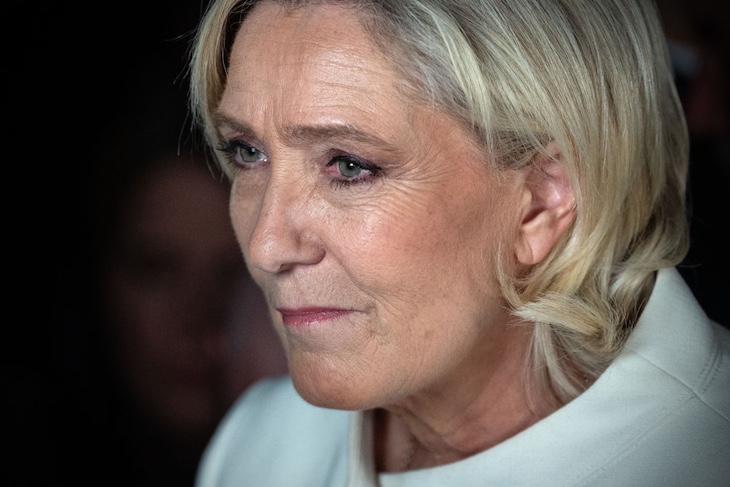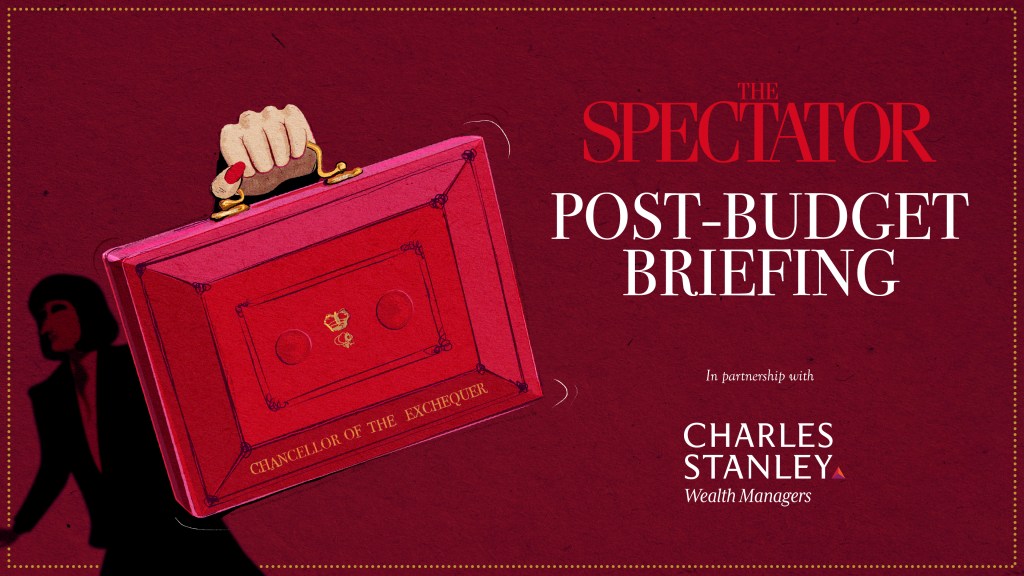The crisis currently ripping apart Reform is nothing new to Marine Le Pen’s National Rally party.
Indeed, the reason her party is called the ‘National Rally’ is a result of her ‘dédiabolisation’ strategy, which aimed to soften the party’s image. Le Pen ditched its original moniker, the National Front, in early 2018, a few months after her comprehensive defeat to Emmanuel Macron in the presidential election run-off. Her father, Jean-Marie, who had co-founded the National Front in 1972, was furious, saying it was ‘totally absurd… a betrayal of the movement’s history’. It wasn’t the first time that father and daughter had fallen out over the party’s direction; in 2015 she had expelled him from the party because of inflammatory comments.
Dédiabolisation appears to be the root cause of Reform’s internecine strife. Writing on Coffee House on Sunday, Patrick O’Flynn assessed what had led Lee Anderson to suspend the whip from Rupert Lowe.
Lowe has ‘become the flag-bearer for the right of the party’, focusing most of his rhetoric on the Pakistani-heritage rape gangs and mass immigration. Farage and his team, wrote O’Flynn, ‘believe that while this mix goes down well with what they term “the online radical right”, it is no way to turn Reform into a party with broader appeal.’
In other words, Farage has espoused Le Pen’s dédiabolisation strategy. This perhaps is no surprise. The pair have known each other for years. In 2017, the Frenchwoman appeared on Farage’s LBC radio show, and she expressed her gratitude for the successful Brexit campaign. ‘We had been told that it was not possible to leave the EU,’ she said. ‘The UK has just demonstrated that, when the people want it, we can set up the conditions to exit the EU. So thank you for showing us the way out of this huge prison.’
‘Frexit’ had been central to Le Pen’s presidential campaign in 2017, but that idea was ditched around the same time she rebranded the party the ‘National Rally’. She also underwent an image makeover, telling all and sundry about her passion for cats and gardening.
Although Le Pen was again beaten by Macron in the 2022 presidential election, in the ensuing parliamentary elections they won 89 seats, 82 more than they’d managed in 2017. In last July’s snap election they increased this number to 125.
And yet in some ways the 2024 election was the most dispiriting setback of Le Pen’s career. She, like many others in France, had believed the ‘cordon sanitaire’ that had been set up around her party during the reign of her anti-Semitic father – what the French also call ‘the Republican Front’ – had been dismantled through her dédiabolisation policy.
In November 2023, one of the Le Pen family’s most implacable adversaries, the left-wing Le Monde published a column that admitted dédiabolisation was ‘a winning strategy’ for her party. The proof? The fact that she and her MPs had been accepted on an anti-Semitism march in Paris that month; Jean-Luc Melenchon’s fa -left La France Insoumise, on the other hand, were not present, and in the months that followed his party faced numerous accusations of anti-Semitism.
But this counted for nothing in last summer’s election. The mainstream media, and Macron’s centrist party, hastily reformed the Republican Front, urging people to vote for anyone but the National Rally. Prime Minister Gabriel Attal even said it was their ‘moral duty’. The predicted victory for the National Rally turned into a chastening defeat, and Melenchon’s left-wing coalition won the most seats.
Unfortunately, Le Pen drew the wrong conclusion from last year’s election defeat. She has doubled down on dédiabolisation in her feverish pursuit of the middle-class vote that she believes is key to her winning power.
Le Pen rules the National Rally with an iron fist and the party is the poorer for it.
The result, as I wrote recently, is that the party has ‘lost its way’ and its core voters are becoming fractious. So, too, is the alternative media, usually far more sympathetic to the National Rally than the legacy media. Two popular podcasts last week questioned the party’s decision to abstain from a vote on Macron’s nomination for the head of the Constitutional Court, the most powerful institution in in France. If they had voted against Richard Ferrand, a close friend of the Macron’s, Le Pen and her party could have dealt a humiliating blow to the president. They chose not to.
In recent months, a new word has entered the French lexicon: the ‘Macronisation’ of the National Rally. Eric Zemmour has been a particular critic of Le Pen, mocking her party for adopting the president’s ambiguity on all the major issues. ‘Marine Le Pen is afraid of all the dirty words,’ he said, by which he meant ‘Islam’ and ‘immigration’.
The only dissent Le Pen has experienced in her 14 years as party leader was from her own father. She rules the National Rally with an iron fist and the party is the poorer for it. Like Farage, Le Pen is not a ‘policy wonk’, which is why the party has lost its bearings in the febrile political climate of the last 12 months.
Reform’s spat may work out for the best, if they listen to the advice of Patrick O’Flynn. ‘The best way forward would be for Farage to show a capacity for growth by attaching more importance to consultation with colleagues and to policy development,’ he wrote. It is possible to appeal to different demographics without losing the party’s raison d’etre. Giorgia Meloni in Italy is proof.
Marine Le Pen, on the other hand, shows what happens when a party is run by an autocrat whose chief policy seems to be appeasing polite society.








Comments